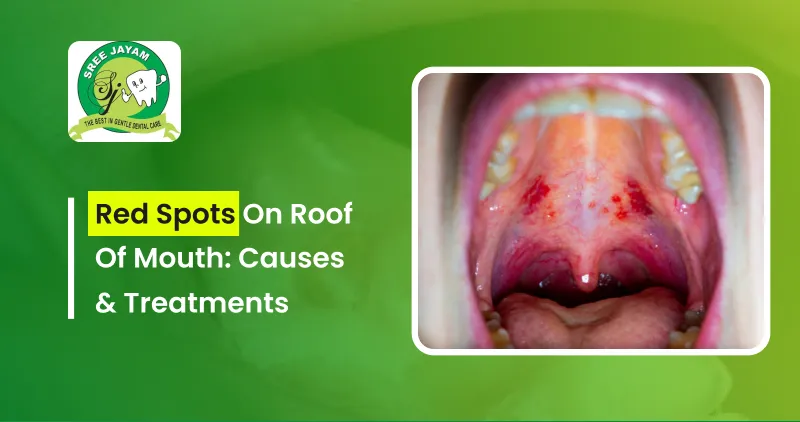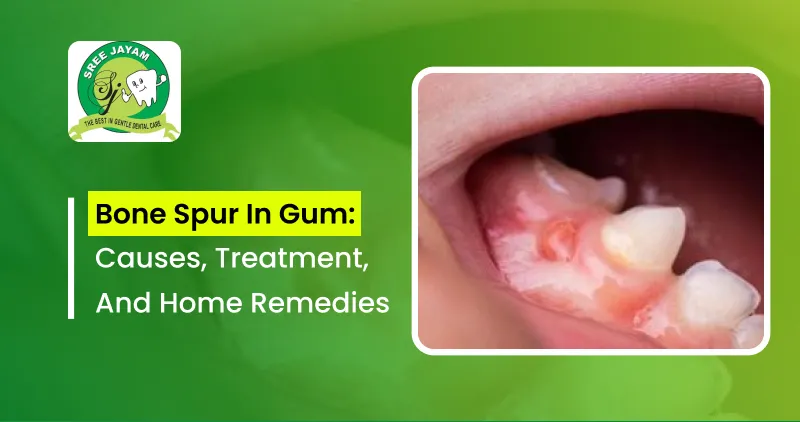
Why Are My Gums Black?
Gums play a vital role in maintaining oral health and aesthetics. Healthy gums are typically pink, but when they start appearing dark or black, it can be alarming. While black gums can be harmless in some cases, they may also indicate underlying oral health issues that need attention.
In this blog, we will explore the causes of black gums, their impact on your health, natural remedies for removing black gums, and treatment options available both at home and professionally.
Table of Contents
What Does Black Gums Mean?
Black gums, also called dark gums, refer to a change in gum colour from light pink to brown, purple, or black. This condition can occur due to increased melanin, smoking, certain medical conditions, or poor oral hygiene. Although sometimes harmless, black gums can also signal infections or serious oral diseases.
What Causes Black Gums?
Let’s explore the primary reasons behind gums turning black:
- Excess Melanin Production: People with darker skin tones may naturally have dark gums due to higher melanin levels in their bodies. This kind of pigmentation is harmless and doesn’t require treatment.
- Smoking and Tobacco Use: Smoking stimulates melanocytes in the gums to produce more pigment, resulting in black gums around teeth. Tobacco chewing can also cause gum irritation and lead to discolouration.
Smokers are 2.5x more likely to develop black gums.
- Poor Oral Hygiene and Gum Disease: Not brushing and flossing regularly can lead to plaque buildup, which may turn into tartar. This allows bacteria to grow, causing gum infections or conditions like black gum disease.
- Medication-Induced Pigmentation: Some medications, such as antimalarials, minocycline, and certain antipsychotics, may result in pigmentation changes, including black gums.
- Amalgam Tattoo: A grey or black spot may appear on the gum near a filling or crown due to dental materials like silver amalgam. This is known as an amalgam tattoo and is harmless.
- Vitamin Deficiencies and Medical Conditions: Deficiencies in vitamin C (scurvy) can cause bleeding, dark, or unhealthy gums. Conditions like Addison’s disease or Peutz-Jeghers syndrome may also cause gums turning black.
- Genetic Factors: Some people inherit gum pigmentation, which becomes more visible over time or due to triggers like stress or hormonal changes.
- Hormonal Changes: Pregnancy, puberty, or hormone therapies can increase pigmentation levels, making gums appear darker.
Are Black Gums Normal?
In people with naturally high melanin levels, black gums are entirely normal and not a cause for concern. This natural pigmentation is similar to how skin tones vary. However, if you notice sudden changes in gum colour, especially if it’s limited to certain areas, spreads rapidly, or appears along with symptoms like bleeding, swelling, pain, or bad breath, it could indicate an underlying problem such as infection, gum disease, or even systemic illness.
In such cases, it’s crucial to seek professional evaluation to determine the exact cause and ensure early treatment if needed. Monitoring any changes in your gum health is essential for maintaining overall oral hygiene and preventing complications.
Toothpaste for Black Gums: Does It Work?
Special toothpastes containing herbal extracts, charcoal, and turmeric can help lighten gums over time. Look for ones with anti-inflammatory and antibacterial agents. When combined with proper hygiene, they support treatment for black gums.
How to Get Rid of Black Gums: Professional Options
If natural methods aren’t enough, your dentist may suggest:
- Laser Gum Depigmentation: Removes melanin with high precision and minimal pain.
- Cryosurgery: Freezing gum tissues to eliminate pigmented cells.
- Gingival Grafting: Transplant healthy tissue over the darkened area.
- Microdermabrasion or Chemical Peels: Exfoliates the top layers.
These procedures provide long-lasting solutions to black gums caused by pigmentation
- About 30% of adults have some form of gum pigmentation.
- In 2024, gum depigmentation procedures saw a 20% increase globally.
Black Gums Around Teeth: Should You Be Concerned?
Darkening around the teeth might indicate:
- Gum disease or infection
- Plaque accumulation
- Smoking effects
When Should You Be Concerned?
While black gums can be normal for some individuals, it’s important to watch for signs that may indicate a more serious condition. You should be concerned if:
- The colour change is sudden or appears in patches.
- You experience pain, bleeding, or swelling in your gums.
- A foul odour or persistent bad breath accompanies the discolouration.
- You notice loose teeth or gum recession.
- You’re not a smoker or person with natural pigmentation, but you still develop dark spots.
These symptoms could point to more serious issues like periodontal disease, infections, or even systemic health problems. In such cases, early evaluation and treatment for black gums are essential to prevent further complications.
Black Gums in Children
In children, black gums are usually harmless and related to natural melanin pigmentation, especially in kids with darker skin tones. However, parents should be alert to sudden changes, especially if the discolouration is limited to one area or associated with symptoms like bleeding or bad breath. Poor oral hygiene, passive smoking, and vitamin deficiencies can also cause dark gums in kids. Teaching proper brushing and dental care from an early age is key.
Foods That Can Stain Gums Temporarily
Some foods and beverages can cause temporary gum discolouration. Items like blueberries, blackberries, coffee, tea, red wine, and food with artificial colouring may leave behind dark stains. These stains are usually not permanent and fade with regular brushing and rinsing. However, if stains persist or are accompanied by pain or swelling, a dental check-up is advisable.
Prevention Tips for Healthy Gums
- Brush twice daily with fluoride toothpaste.
- Use an antibacterial mouthwash.
- Avoid smoking and tobacco.
- Eat a balanced diet.
- Schedule dental cleanings twice a year.
Conclusion
Black gums can be a result of natural pigmentation, lifestyle habits like smoking, or even medical conditions. While in many cases they are harmless, you shouldn’t ignore sudden or uneven discoloration. Several options are available to address this issue, including professional black gum treatment at clinics.


















